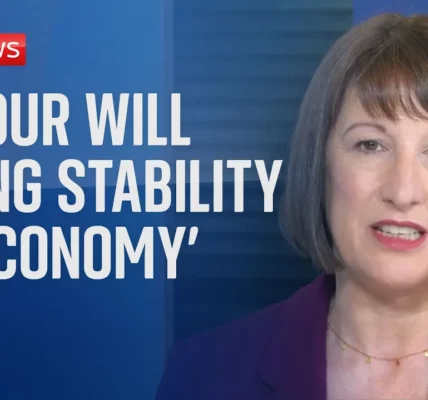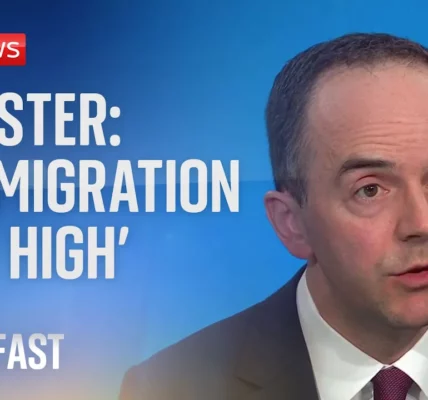Labour Launches Change Manifesto Amid Economic Concerns

In a pivotal moment for UK politics, Labour has launched its change manifesto, stirring discussions about economic policy, tax reforms, and the party’s vision for the future. This article delves into the implications of the manifesto, the responses from various political figures, and the context of the upcoming G7 summit.
Introduction
The political landscape in the UK is rapidly evolving as Labour unveils its change manifesto, aiming to address pressing economic issues while navigating the complexities of public sentiment. With tax rises looming and a recent poll indicating that Reform UK has surpassed the Conservatives for the first time, the stage is set for a heated political discourse. This article explores the key themes of Labour’s manifesto, the reactions from various media outlets, and the broader implications for the UK’s political future.
Labour’s Change Manifesto: Key Highlights
Labour’s manifesto emphasizes a commitment to revitalizing the UK economy, with a focus on fiscal responsibility and public service reform. Here are some of the main points covered:
- Investment in the Economy: Labour plans to inject £8.6 billion into the economy, primarily through measures aimed at reducing tax avoidance.
- Closing Tax Loopholes: The manifesto highlights the importance of addressing non-dom tax loopholes to ensure fair taxation.
- Public Service Improvement: Labour promises to enhance public services, but specifics on funding and execution remain vague, raising questions among voters.
Media Reactions and Public Sentiment
The launch of the manifesto has elicited varied responses from the media, reflecting the complexities of public sentiment surrounding Labour’s proposals.
The Guardian’s Perspective
Traditionally perceived as a supporter of Labour, the Guardian raises concerns about the feasibility of the proposed changes, questioning how Labour leader Keir Starmer plans to fund his ambitious agenda.
The Times and the Conspiracy of Silence
According to the Times, there are accusations of a “conspiracy of silence” regarding Labour’s actual tax plans, suggesting that the party is dodging critical questions about its fiscal strategy.
Chancellor’s Warning
Chancellor Jeremy Hunt has cautioned the public against what he describes as Labour’s hidden “tax trap,” indicating that any forthcoming tax rises could be more significant than acknowledged.
Economic Implications of Labour’s Proposals
As Labour’s manifesto promises sweeping changes, there are significant economic implications that need to be addressed:
- Potential Tax Increases: With the proposed plans requiring substantial funding, analysts anticipate potential tax increases that could impact various demographics.
- Public Spending Cuts: The need to balance the budget may lead to cuts in public spending, raising concerns about essential services.
- Voter Confidence: How Labour communicates its fiscal strategies will be crucial in maintaining voter confidence amidst rising economic uncertainties.
The G7 Summit and Global Context
As the world’s most powerful leaders convene at the G7 summit, discussions surrounding global economic support, particularly for Ukraine, come to the forefront. This context is critical as Labour positions itself within a global framework of cooperation and support.
Impacts on Domestic Policy
The outcomes of the G7 summit could influence Labour’s approach to international and domestic policies, particularly in areas such as defense and economic stability.
Public Perception of Global Leadership
The UK’s role in international discussions may shape public perception of Labour’s capability to lead, especially in light of ongoing economic challenges at home.
Conclusion
Labour’s change manifesto marks a significant moment in UK politics, highlighting both ambitious proposals and critical economic challenges. As the public awaits clarity on funding and execution, the party must navigate a complex landscape of voter expectations and media scrutiny. The upcoming G7 summit adds another layer of complexity, as global economic discussions are likely to influence Labour’s domestic agenda. For those interested in the evolving political landscape, staying informed is essential. Check out our related articles on economic policy and tax reform for deeper insights.
“`




